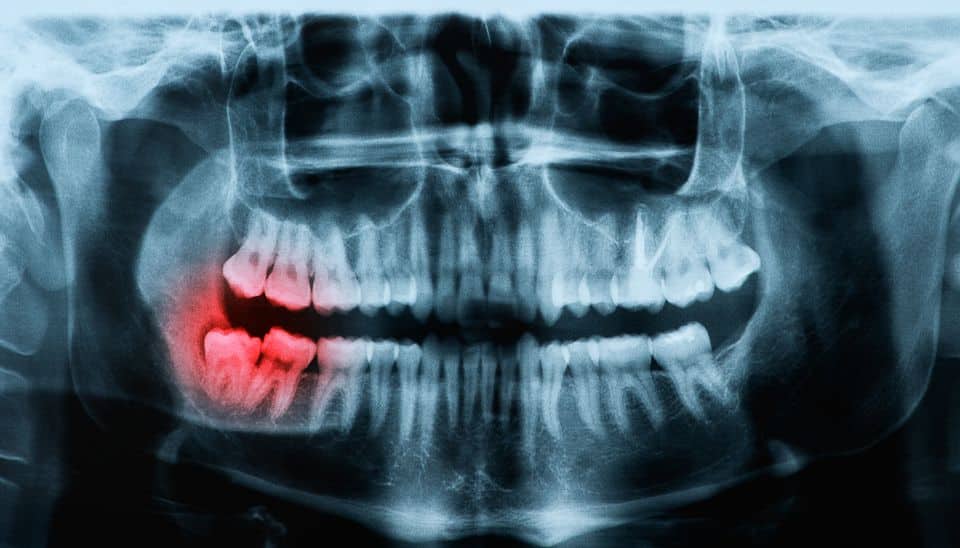Wisdom teeth, also known as third molars, typically emerge in your late teens or early twenties. While some people have no issues with these teeth, others may experience complications that necessitate their removal.
At Hamilton Dental Centre in Rototuna, we often see patients unsure about whether their wisdom teeth require extraction. This is perfectly normal. Wisdom teeth can cause discomfort to people at all stages of life and knowing if that discomfort means anything more significant is a tricky thing for anyone to understand without seeing a dentist.
If you have occasional discomfort, it’s more than likely that you have no underlying issues with your wisdom teeth, however, you should always mention the frequency of the discomfort at your regular dental checkups. That way, our dentists can take a close look to make sure there is nothing more serious going on.
For other people, however, discomfort can lead to pain and this can indicate other underlying issues with your wisdom teeth that may mean that extraction is necessary in the long run.
In this post, we are going to talk you through five of the clear signs that usually indicate an underlying issue with your wisdom teeth that may mean they need to be removed.
5 Signs Your Wisdom Teeth Might Need to be Removed
To help you understand when it might be time to consider removal, here are the top five signs to watch out for:

1. Persistent Pain or Discomfort
One of the most common indicators that your wisdom teeth may need removal is persistent pain or discomfort in the back of your mouth. This pain can range from a dull ache to sharp, intense discomfort. If you’re experiencing ongoing pain near your wisdom teeth, it’s crucial to have them examined by a dental professional.
2. Infection or Swelling
Partially erupted wisdom teeth can create pockets where bacteria thrive, leading to infection. Signs of infection include swelling of the gums around the tooth, redness, and tenderness. You might also notice a bad taste in your mouth or experience difficulty opening your jaw fully. These symptoms indicate a potential pericoronitis, a common infection associated with wisdom teeth.
Common symptoms include:
- Swollen, red, or tender gums.
- Difficulty opening your jaw.
- Persistent bad breath or a bad taste in your mouth.
Home Tip: Until you can see your dentist, rinse your mouth with warm saltwater to reduce inflammation and discomfort.
3. Damage to Adjacent Teeth
As wisdom teeth emerge, they can push against your existing molars, potentially causing damage or misalignment. This pressure can lead to crowding, making it difficult to clean between teeth and increasing the risk of decay. If you notice changes in your bite or new sensitivity in your second molars, it could be a sign that your wisdom teeth are causing problems.

4. Cysts or Tumours
In some cases, wisdom teeth that don’t erupt properly can lead to the formation of cysts or tumours around the impacted tooth. These growths can damage the jawbone, nerves, and surrounding teeth if left untreated. While rare, this complication underscores the importance of regular dental check-ups to monitor wisdom teeth development.
Routine dental X-rays are crucial for detecting these complications early. At Hamilton Dental Centre, we use advanced imaging to monitor your wisdom teeth’s development and catch issues before they become severe.
5. Sinus Issues
Upper wisdom teeth can sometimes interfere with your sinuses, causing congestion, pressure, and headaches. If you’re experiencing unexplained sinus problems, your wisdom teeth might be the culprit. A dental x-ray can help determine if there’s a connection between your sinus discomfort and your wisdom teeth.
It should be noted that even if you are experiencing any of the five symptoms above, this doesn’t always mean that you will need to have your wisdom teeth extracted. It does mean, however, that you should book in to see your dentist sooner rather than later before any potential issues start to escalate.
When to Seek Professional Advice
If you’re experiencing any of these signs, it’s important to consult with a dental professional. At Hamilton Dental Centre, we offer comprehensive wisdom teeth evaluations. Our experienced team can assess your individual situation and recommend the best course of action, whether it’s monitoring your wisdom teeth or planning for their removal.
Remember, early intervention can often prevent more serious complications down the line. Regular dental check-ups are crucial for monitoring the development and position of your wisdom teeth, even if you’re not currently experiencing symptoms.
At Hamilton Dental Centre, we offer:
- Comprehensive wisdom tooth evaluations using state-of-the-art imaging.
- A tailored approach to managing your oral health.
- Options for comfortable and effective wisdom tooth removal if needed.
Conclusion
While not everyone needs their wisdom teeth removed, being aware of these signs can help you make informed decisions about your oral health. If you’re concerned about your wisdom teeth or experiencing any of the symptoms mentioned, don’t hesitate to reach out to us at Hamilton Dental Centre. Our team is here to provide expert care and guidance, ensuring your smile stays healthy and pain-free.
For more information on wisdom teeth and their care, explore our other articles in this series, including “Everything You Need to Know About Wisdom Teeth” and “The 4 Types of Wisdom Teeth Impaction Explained.” These resources, along with our dedicated Wisdom Teeth Service Page, form a comprehensive guide to help you understand and manage your oral health effectively.
FAQs About Wisdom Teeth
Q: Can wisdom teeth cause headaches?
A: Yes, impacted wisdom teeth can place pressure on surrounding nerves, potentially leading to headaches or jaw pain.
Q: What’s the recovery time for wisdom tooth extraction?
A: Most people recover within 7–10 days, but this can vary depending on the complexity of the extraction.
Q: How do I know if my wisdom teeth are impacted?
A: Signs include persistent pain, swelling, difficulty chewing, or visible misalignment on a dental X-ray.
Further Reading on Wisdom Teeth
For more information, explore our other resources:
- Everything You Need to Know About Wisdom Teeth
- The 4 Types of Wisdom Teeth Impaction Explained
- How to Avoid Dry Socket After Wisdom Teeth Removal
- Visit our Wisdom Teeth Service Page for a comprehensive guide to managing your oral health.
Site map
Services
Contact Us
T: 07 854 8905
E: info@thehdc.co.nz
3/111 Thomas Road,
Rototuna, Hamilton
copyright © 2025 Hamilton Dental Centre | Credit Terms | Web development by Digital Hothouse

